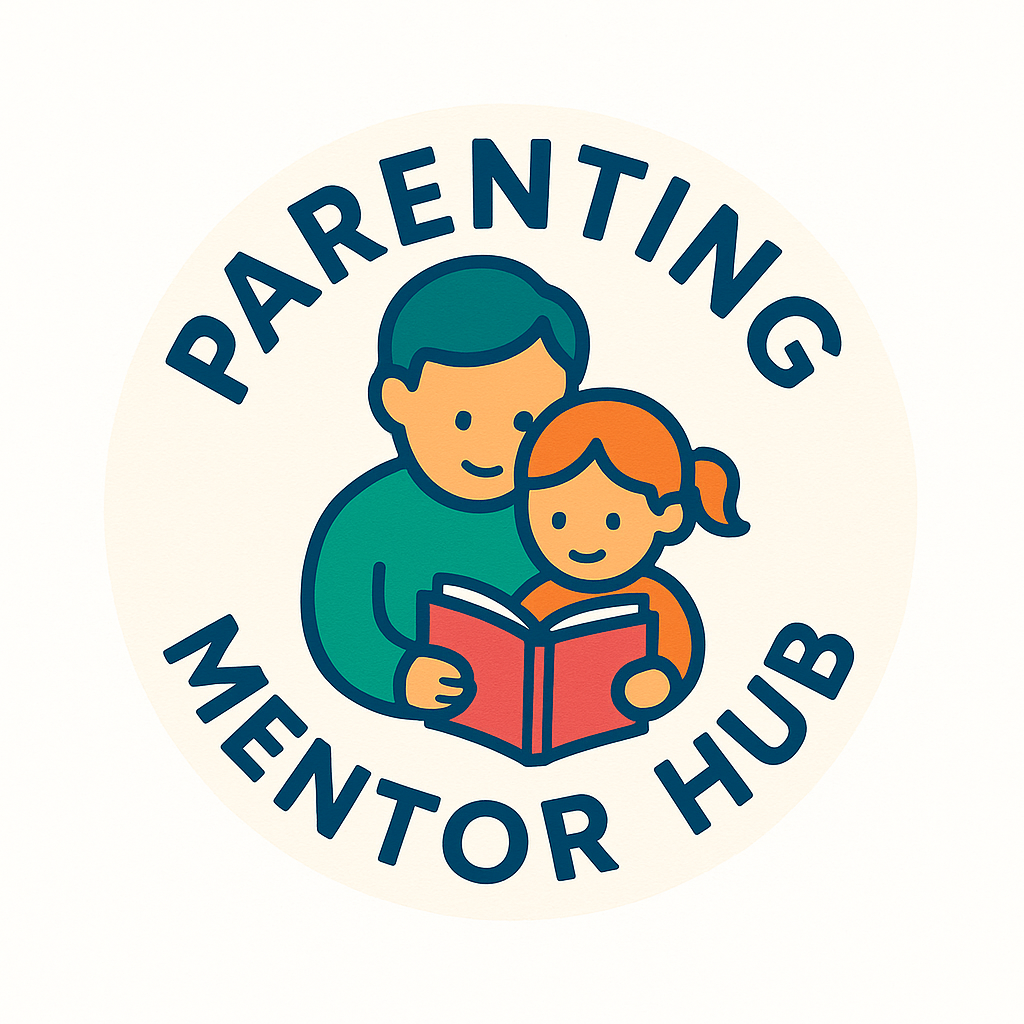
Ever worry you’re not doing enough to connect with your child?
A strong parent-child bond gives children a deep sense of trust, security, and belonging. When kids feel safe and loved, they develop confidence, resilience, and stronger relationships with others. The good news is, building that connection doesn’t require grand gestures – it’s the little things, done consistently, that matter most.
Here’s one powerful way to strengthen your bond, plus a few simple ways to make it part of everyday life:
1. Focus on Quality Time
Children feel most valued when they have your full attention, even for short moments. Parenting psychologist Dr. Becky Kennedy reminds us that connection is built in ordinary moments – playing a board game, baking together, or walking the dog. Even screen time can bring you closer if you join your child in their world. You could let them teach you a game like Roblox or Minecraft, and you might find you’re enjoying yourself and having fun too!
You don’t necessarily need to spend more time, but you should make the time you do have meaningful. Simple, device-free activities that encourage conversation and shared enjoyment create lasting memories and trust.
Here are a few ideas:
Set aside a daily “no screens” hour for you and your child to do something you both enjoy – maybe a card game, a jigsaw puzzle, or a trip to the park.
Ask open-ended questions, but don’t push for answers. You may want to wait until your child shares something about their day. Make sure you then listen closely, even if your mind is on other things.
Look for small, meaningful moments – you might chat in the car, prepare dinner together, or fold laundry side by side. Younger kids love to help, even if it slows things down a little.
What matters most is consistency. These small, sincere interactions lay a foundation of trust and connection that lasts a lifetime.
2. Practice Positive Communication
Open, honest communication is at the heart of a strong parent-child bond. When children feel heard and understood, they’re more likely to share what’s really on their mind and to ask for help when they need it. Parenting author Philippa Perry reminds us that kids learn how to express emotions by watching how we handle ours.
Active listening means slowing down, giving your full attention, and resisting the urge to jump in with quick fixes. Often, children don’t want solutions right away – they just want you to acknowledge how they’re feeling. Saying something like, “That must have been frustrating” or “I can see why you’re upset” helps them feel understood, not dismissed.
Simple ways to foster communication:
Make time for conversation: Bedtime, setting the table, walking to the park, or chatting in the car all create natural opportunities to connect.
Use open body language: Kneel to their level, make gentle eye contact, and offer a reassuring smile or hug.
Show that you’re listening: Dr. Becky Kennedy recommends three powerful phrases:
“I’m so glad you’re telling me this.”
“I believe you.” (You believe that’s truly how they’re feeling in that moment.)
“Tell me more.”
These small but meaningful gestures show children that their emotions matter. Over time, this builds trust, strengthens emotional resilience, and gives them tools to handle their own feelings and conflicts more constructively.
 Strong parent-child bonds are built in small daily rituals, like sharing meal preparation.
Strong parent-child bonds are built in small daily rituals, like sharing meal preparation.
3. Build Traditions and Routines
Reliable routines and meaningful rituals give children a sense of safety, stability, and identity. Simple family traditions like Friday movie nights, Saturday football matches, or annual holiday activities create lasting memories and strengthen family bonds. We recently moved house and had to declutter 45 years’ worth of accumulated possessions. The one thing both children stressed was ‘Don’t throw away any of our photos’.
Even small, consistent habits can have a big impact. Shared meals, bedtime reading, or monthly family outings provide predictability, helping children feel secure and valued. If you look at Amazon reviews, you will often find that new parents buy books for their children that they themselves enjoyed as a child.
Ideas for meaningful routines:
Eat together at the table. Keep phones away during mealtimes – messages can wait.
Celebrate milestones with rituals. Mark birthdays with candles and a special cake, even if it’s a healthier version than you might have had in the past.
Embrace seasonal traditions. Pick fresh flowers for a weekly vase, make your own Christmas decorations, make an advent calendar, paint Easter eggs, or go blackberry picking and bake a crumble together.
These small, steady traditions foster a deep sense of belonging that children carry into adulthood – and may even pass on to their own families one day.
4. Encourage Independence and Mutual Respect
Strong relationships thrive on mutual respect. Giving children age-appropriate choices – what to wear, which hobby to try, or which vegetable to have at dinner – shows that you trust their judgement. This trust builds confidence and helps children feel valued. Parenting research consistently shows that warmth paired with clear boundaries creates a healthy balance, encouraging cooperation, responsibility, and self-belief.
Explaining the reasons behind rules, rather than enforcing them “because I said so,” helps children see limits as fair and reasonable. Listening closely to their opinions and modelling respectful communication teaches them to treat others the same way.
Ways to encourage independence:
- Offer simple choices within safe boundaries: “Would you like to wear the blue jumper or the red one?”
- Give children age-appropriate responsibilities, such as feeding the pet or helping set the table.
- Celebrate effort and courage when they try something new – even if it doesn’t go perfectly.
- Allow safe mistakes and use them as learning opportunities rather than stepping in too quickly.
When children feel respected, they’re more likely to return that respect, strengthening trust and making your relationship more cooperative and connected.
5. Manage Conflict and Repair Relationships
Arguments and tough days are part of family life. What matters most is how you reconnect afterwards. Attachment expert Dr. Daniel Siegel reminds parents that repairing the bond after conflict is more important than never arguing at all.
Taking time to pause, apologise, and reflect shows children that relationships aren’t always perfect, but they can be repaired. This teaches resilience, empathy, and emotional intelligence.
Simple repair strategies:
- Give your child time to share their side of the story without interruption.
- Take a short break if emotions are running high, then return when everyone is calm.
- Offer a genuine apology: “I’m sorry. I was tired and snapped at you. That wasn’t fair, and I’m sorry.”
- Talk through better ways to handle similar situations next time.
Children learn that love isn’t about perfection; it’s about caring, effort, and a willingness to listen and make amends.
Adapting to Different Ages
Bonding looks different as children grow. Younger children thrive on physical closeness, playful interaction, and shared routines. Older children and teens may need more space but still value your interest in their lives. Showing up consistently – even if it’s just for a chat over a snack or watching a show together – helps maintain trust and connection through every stage.
Tips for staying connected as they grow:
- Keep family rituals going, like shared meals or weekend outings, even if teens are quieter.
- Respect their privacy but stay available, letting them know your door is always open.
- Get curious about their world – ask about their favourite music and listen without judgement, show up to their sports events, and take an interest in their online spaces, like Instagram. A simple “like” or a short, encouraging comment on their posts can mean a lot, showing that you’re present and supportive in their world.
Why Strong Bonds Matter
A close parent-child bond is the foundation of emotional well-being. It helps children develop resilience, regulate emotions, and form healthy friendships and relationships. Research shows that children who feel consistently loved and understood are better equipped to handle stress, setbacks, and life’s challenges.
The most powerful tools for connection aren’t complicated: warmth, patience, consistency, and genuine interest. Expert resources and parenting books can offer extra guidance, but the strongest foundation is built at home through everyday moments of attention, love, and care.
Strong bonds are built in the small, everyday moments. Start with one today and watch the bond with your child get stronger.
For more ideas and inspiration, see my guide to parenting books that strengthen connection and confidence.

This is exactly what I needed to read this morning. Thank you for sharing such thoughtful ways to nurture connection – each one feels like a gentle reminder to slow down and be present.
Thank you for your comment, Anamaria. I am glad it was exactly what you needed to hear. It’s often difficult to listen attentively and fully pay attention to what our child is saying when our own mind is racing and we are in a hurry or stressed.